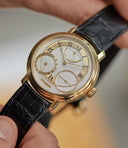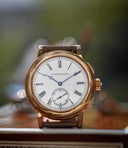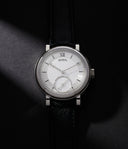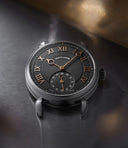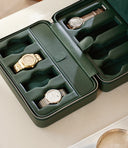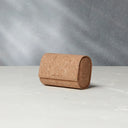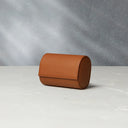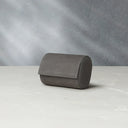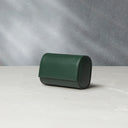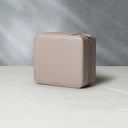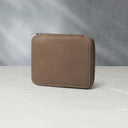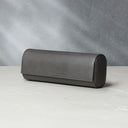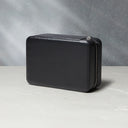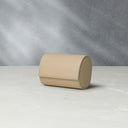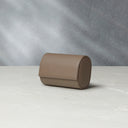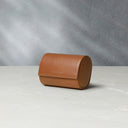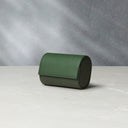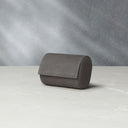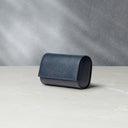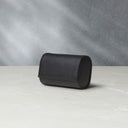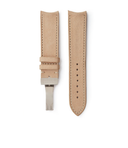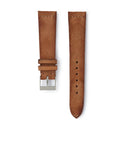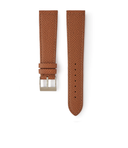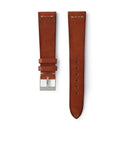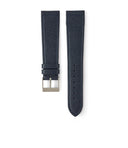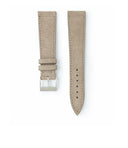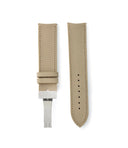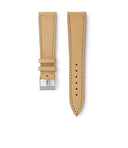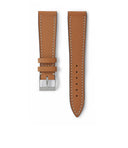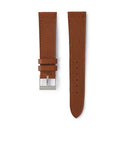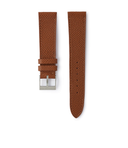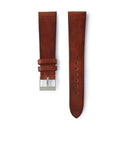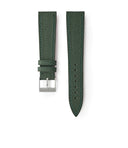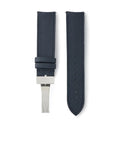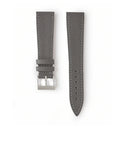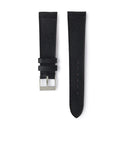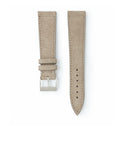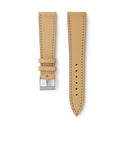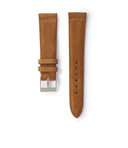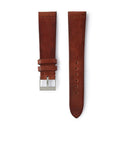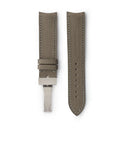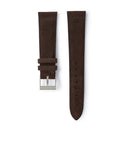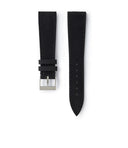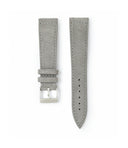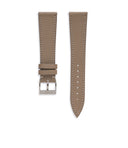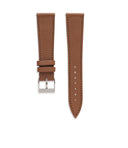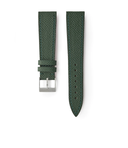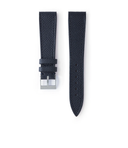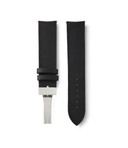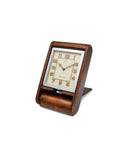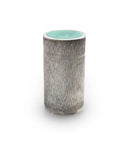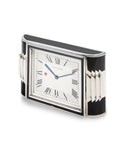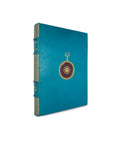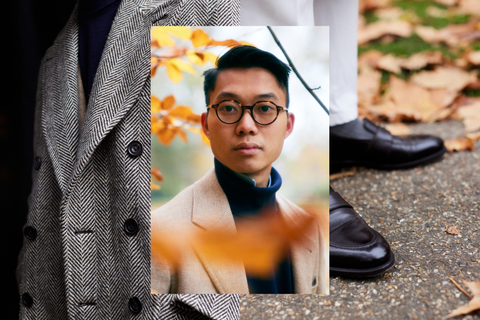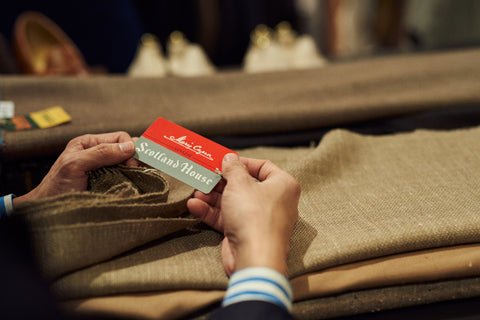
Interview: Jason Jules
By Daniel Penny
Strolling past the colourful homes of Notting Hill, Jason Jules points out the placards dedicated to the people who made this neighbourhood a centre for Black life in Britain. The model, former jazz club promoter, itinerant creative director, PR whiz, man about town and now author has just seen the release of his first literary work: Black Ivy: A Revolt in Style.
He has recently arrived from Paraguay, where he’s been staying with his partner and her family for the past few years, but he was born and raised in East London. By some stroke of fortune, Jules explained that he had “never had a proper job”, but has managed to get by as a professionally cool guy since he graduated university 37 years ago. It’s a feat he can neither explain nor fully understand, but for which he is grateful. Though he is well known on Instagram (as @garmsville) for his shapely beard and signature specs – in person, he seems like he’d rather not be the centre of attention.

Jules in Notting Hill.
The idea for Black Ivy can be traced back to one afternoon in Asunción, the capital of Paraguay, when Jules decided that he needed to channel his thoughts about fashion into a proper book. Co-authored by Graham Marsh, the book chronicles the ways in which African-Americans adopted and reshaped mid-century collegiate fashion during a period of enormous social change.
We wanted to get a better understanding of the topic – and how Jules went from club promoter to author – so we sat down with him to discuss the finer points of his newest project and what it’s like for a novice to enter the world of publishing.
ACM: Let’s start with the book. I’m curious why you were interested in this period of fashion – and in African-American style, particularly since you’re not American. What attracted you to the clothes in Black Ivy?
JJ: Ever since I was about three or four, I’ve been into clothes, and primarily what I understood to be American clothing. I was born short-sighted, and when I was about three or four, I remember watching TV very close up. There was a series of reruns of Fred Astaire movies and, for some reason, I was really compelled to watch these things every afternoon. I remember saying to my mum: “I want to dress like ‘Alistair’.” I didn't want those clothes at the shop. “I want to dress like Alistair.” And she had no idea what I was talking about. And I didn’t have any idea what I was talking about actually, because I couldn’t read yet. It was only like a couple years later, going to school, that I recognised my mistake.


Jules, a polymath who has also been a “professional cool guy” for the last 37 years.
But all that is to say that even before I could read properly, I was fascinated by this look. And as I grew older, I discovered jazz music. And I discovered the Ivy League look. I was growing up working class in East London, and started getting into jazz music and jazz clubs. And going into Soho and hanging out.
Were you playing or you were just a fan?
I was just a fan, and I eventually organised jazz clubs. But a lot of it was to do with the style. You know, maybe we were recreating the style, but also making a statement about being different from the other kids at that time. When you see the album covers, there’s so much going on with them in terms of clothes.
So how did you get into the fashion industry?
I’ve been lucky, or maybe selfish in the sense that I’ve only really worked on stuff that I like and, pretty much most of the time, with people that I like. My first ever job was in France and I was there for a year. I wanted to be a stylist, a proper fashion stylist. I had finished studying and was thinking about what I'm going to do for a living. I figured, “OK, I like clothes. I’m going to be a fashion stylist – and it doesn't seem like a proper job, so I’m sure I can do that.”
Even before I could read properly, I was fascinated by this look. And as I grew older, I discovered jazz music. And I discovered the Ivy League look. I was growing up working class in East London, and started getting into jazz music and jazz clubs.
And then I called up a couple of magazines, because that’s what fashion stylists did. They’re out of magazines. And I asked: “How do you become a fashion stylist? And one of them, a man at a girls’ magazine called Look Now, said, “We’re doing a shoot next week. Why don’t you come along?” So I went on set. Amazing clothes, rails and rails of clothes everywhere, huge studio, nice and relaxed music in the background. The sound of cameras clicking was just lovely. I remember there was champagne and strawberries and it’s like, “Wow, this is what styling is about? This is really good. You kind of get to hang out and put clothes on people, have some champagne when you fancy.”
So it was that easy?
No. I was told that in order to become a stylist, you need to know people. So the first thing you need to do is work at a PR company. “Go into a PR company; you’ll meet all the magazine editors.”

An enduring constant is his obsession with “the Ivy League look”.
So I understand that you earnt an English and Philosophy degree which feels quite relevant to PR (as opposed to styling). You’ve got to be able to write.
Yeah. When I applied for a job at one firm, essentially they said I was overqualified for the gig, but there was a vacancy for a gopher. I said, “I’m happy to do that because I want to get into this world I want to learn.” So I took the job. Best 12 months of my life. After a couple of months, I became a junior account executive, worked on some really nice projects. But what I realised is that I didn’t like fashion. I liked the magazines. I liked the creative process, but I didn’t like fashion.
Was it that you just didn’t like the style of that particular era? The 1980s were tough for a lot of people.
No, it was the culture. It was the superficiality of the way people related. It was the hierarchy of the magazines. It was the disposability of the clothes. I just couldn’t relate to it. So I left and started doing clubs. But some key lessons that my boss, Lynn, had taught me were: just be nice to everybody and remember everyone’s name. If you’re going to do something, do it 100% and you don’t have to shout about it. Just really fundamental stuff.
Did these interests in African-American fashion and jazz music carry through into your studies, or was that separate?
Yeah, in a sense, part of that is in the seeds of the book. I’m not sure if I go deeply into it in the book, but it’s definitely in the background. There’s this idea that this particular style of dress was [the] cultural property of mainstream America or “white America”. And then you look at stuff like Norman Mailer’s essay “The White Negro”, you read Jack Kerouac’s books, or you listen to half a dozen West Coast jazz records, you recognise how much is owed to African-American culture. And how much has been ignored, marginalised to the point where not even contemporary African-Americans recognise it as part of their culture. So I figured that this book needs to be for me personally, because it’s like an exploration of stuff that I really love. But also, I thought, maybe there’s an audience for it, because I know that there are tons of folks like me who are into this.
Can you tell me a bit about some of the photographers who captured the images in Black Ivy? I thought it was interesting that you featured a few of them as entries.
Gordon Parks, Don Hogan Charles, and Ted Williams: they’re notable figures in their own right, pushing the agenda and setting the tone of how we look at ourselves. In a sense, the book is about photography. And so, even though we’ve got probably more Magnum photographers than your average coffee table book – Black Ivy just wouldn’t exist without these guys.
There’s this idea that this particular style of dress was [the] cultural property of mainstream America or “white America”. And then you look at stuff like Norman Mailer’s essay “The White Negro”, you read Jack Kerouac’s books, or you listen to half a dozen West Coast jazz records, you recognise how much is owed to African-American culture.
I think there are some resonances between the period that you’re writing about and our own moment, in terms of the recognition of Black people in public life, and their unfair treatment by the police or government. And there’s been a real reckoning in the US and Britain. Was that in the back of your mind as you were writing this book?
It would be hard for it not to be. To be honest, it was at the forefront of my mind because to me, I didn’t want the book to be about the past – some nostalgic, romantic vision of what happened. You know, like the good old days, or whatever, when clothes were made in America, and there were stores on every campus, and all that. It wasn’t about that. It came from a place of empathy, rather than from a place of just objectivity. And some of the resonances – it was surprising, as well, like the death of John Lewis and the John Lewis Voting Rights Advancement Act in Congress. It’s like, “Wow, nothing has really changed that substantially.” So that was at the forefront of my mind, but it freaked me out at the same time.

Marginalisation and alienation: Jules seeks to unearth history that has been ignored when it comes to Ivy League style.
Could you tell me about a particular image or entry? Maybe one that's a little more off the beaten track. Something you’re excited about that you think maybe people don’t know as well? Or maybe they haven’t seen that side of them?
Art Blakey. You know, in a sense, he had huge success. He was a drummer [who] gave an opportunity to some incredible talent. But very few people knew that there was a political, spiritual undertone to everything that he did. In public, he was called Art Blakey, but behind closed doors, he retained his Muslim name, Abdullah Ibn Buhaina. And so it was important to talk about that, because it shows that what we see on the surface is not all there is.
Did you ever think of making a playlist?
I did! I made one playlist for Drake’s radio. But it was essentially a soul jazz version. There’s not a lot of super-experimental free jazz on it. Because I think it would be a bit unfair.


From fashion to jazz, Jules aims to explore ideas and creation within the past.
Yeah, not everyone can handle free jazz. Your mind needs to be really expanded.
You’ve got to be ready for that. Yeah. I was thinking, when I was listening to certain records and working on this book, I’m not trying to imagine going back to those times. I’m actually just listening to the ideas that they’re exploring at the time. I was listening to a lot of interviews, especially ones that took place in Europe, strangely enough – Eric Dolphy, John Coltrane, and others. They’re making this music which, at the time, people were calling “anti-jazz”, because the audiences were finding it so difficult to get. A lot of the audience were offended. And the musicians were saying: “Actually, we’re not trying to offend the audience. We’re actually trying to find something that we’d like to play.”
But they were using the performance as that process of finding a sound. So it’s almost like you’re witnessing an exploration; you’re actually part of somebody else’s journey.
We would like to thank Jason Jules for taking the time to speak with us.




























































































